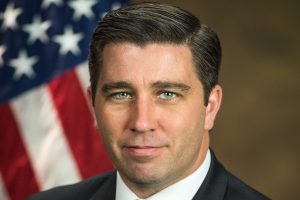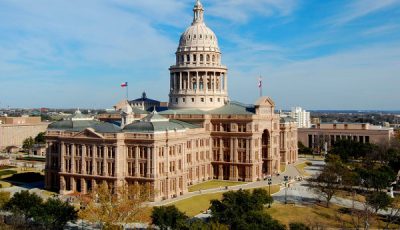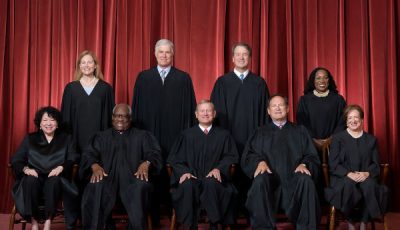DOJ’s Boyd Floats Idea of Rewriting Section 230 from Scratch
 WASHINGTON, D.C. – In a letter sent to the chairmen of committees in both the House and Senate, Assistant Attorney General Stephen E. Boyd suggested that among the options Congress should consider with respect to Section 230 of the Communications Decency Act is “starting from scratch” with an entirely new piece of legislation, rather than simply amending the existing text of the statute.
WASHINGTON, D.C. – In a letter sent to the chairmen of committees in both the House and Senate, Assistant Attorney General Stephen E. Boyd suggested that among the options Congress should consider with respect to Section 230 of the Communications Decency Act is “starting from scratch” with an entirely new piece of legislation, rather than simply amending the existing text of the statute.
The letter is the latest in a series of bills, proposals and memos calling for the amending, repeal and/or replacement of Section 230, which have flowed from both major parties across various branches of government.
In his letter, Boyd said the DOJ “rejects the view, suggested by some commentators, that Section 230 must be left alone for fear that any change to the law will cripple the tech industry.”
“While Section 230 has helped build today’s internet by enabling innovation and new business models, the internet itself has drastically changed since 1996,” Boyd wrote. “Online platforms are no longer nascent companies but have become titans of industry. Platforms have also changed how they operate, functioning not as simple forums for posting third-party content but rather employing sophisticated algorithms to suggest and promote content and connect users. Whether by amending the existing text of Section 230 or starting from scratch, legislative proposals should consider these realities.”
Earlier in the letter, Boyd cited a recent statement authored by Supreme Court Justice Clarence Thomas, in which Thomas said the court should “in an appropriate case… consider whether the text of this increasingly important statute aligns with the current state of immunity enjoyed by Internet platforms.”
“As Justice Thomas noted, those decisions have ‘emphasized nontextual arguments’ in the service of expanding immunity ‘beyond the natural reading of the [statutory] text,’” Boyd wrote. “Similarly, the recent announcement by Chairman Pai that the Federal Communications Commissions will undertake rulemaking to clarify the meaning of Section 230 in response to the petition of the National Telecommunications and Information Administration is a positive step.”
Boyd also cited the decision by some social media platforms to limit the sharing of the New York Post expose on Hunter Biden’s laptop as having “made reform even more urgent.”
“Today’s large online platforms hold tremendous power over the information and views available to the American people,” Boyd wrote. “It is therefore critical that they be honest and transparent with users about how they use that power. And when they are not, it is critical that they can be held accountable. For example, the decision by two social media companies to restrict access to news content of significant public interest from the New York Post, a widely distributed journalism publication, is quite concerning.”
The core of Boyd’s argument is major social media platforms are not removing content in “good faith” as he seems to interpret the statute to require.
“Under the current text of Section 230, an online platform that removes content in bad faith or that demotes the speech of others based on political viewpoint should not be entitled to immunity,” Boyd wrote. “That text provides immunity only for content removed ‘in good faith’ because it is ‘obscene, lewd, lascivious, filthy, excessively violent, harassing, or otherwise objectionable’ — not merely because the platform operators themselves dislike or disagree with it.”
Boyd continued that if “a victim were to file meritorious claims against an online platform in such instances, the Department would be willing to file a statement of interest to clarify that, under a proper reading of the statute, Section 230 does not immunize such conduct.”
(It probably should be noted that the “proper reading” of the statute asserted by Boyd here contradicts essentially all existing case law related to Section 230.)
After citing the statement from FCC Chairman Pai as a “positive step,” Boyd made clear he thinks the best course of action is for Congress to amend or replace the statute.
“The most certain way to ensure an open and safe internet, however, is legislative reform,” Boyd wrote. “The Department accordingly reiterates its legislative proposal… to modernize Section 230. While the Department’s proposal amends the current statutory text, the time also may be ripe for Congress to start from a blank slate to account for the dramatic changes in this industry.”
Boyd added that Congress “may also wish to consider that legislative changes to the existing text should clearly overrule erroneous precedent that has built up around Section 230 over the last 25 years,” noting that this is “something which striking all of Section 230 and starting on fresh canvas would not have to contend with.”
Boyd concluded his letter by stating American citizens are “relying on the internet more than ever for commerce, entertainment, education, employment, and public discourse, and children are spending more time online, at times unsupervised, just as more and more criminal activity is moving online.”
“All of these factors make it imperative that we maintain the internet as an open and safe forum, and that we begin this work together now,” Boyd wrote. “We believe there is a path forward that preserves innovation while improving transparency, safety, and the free exchange of ideas. The Department looks forward to working with Congress to address these challenges.”













